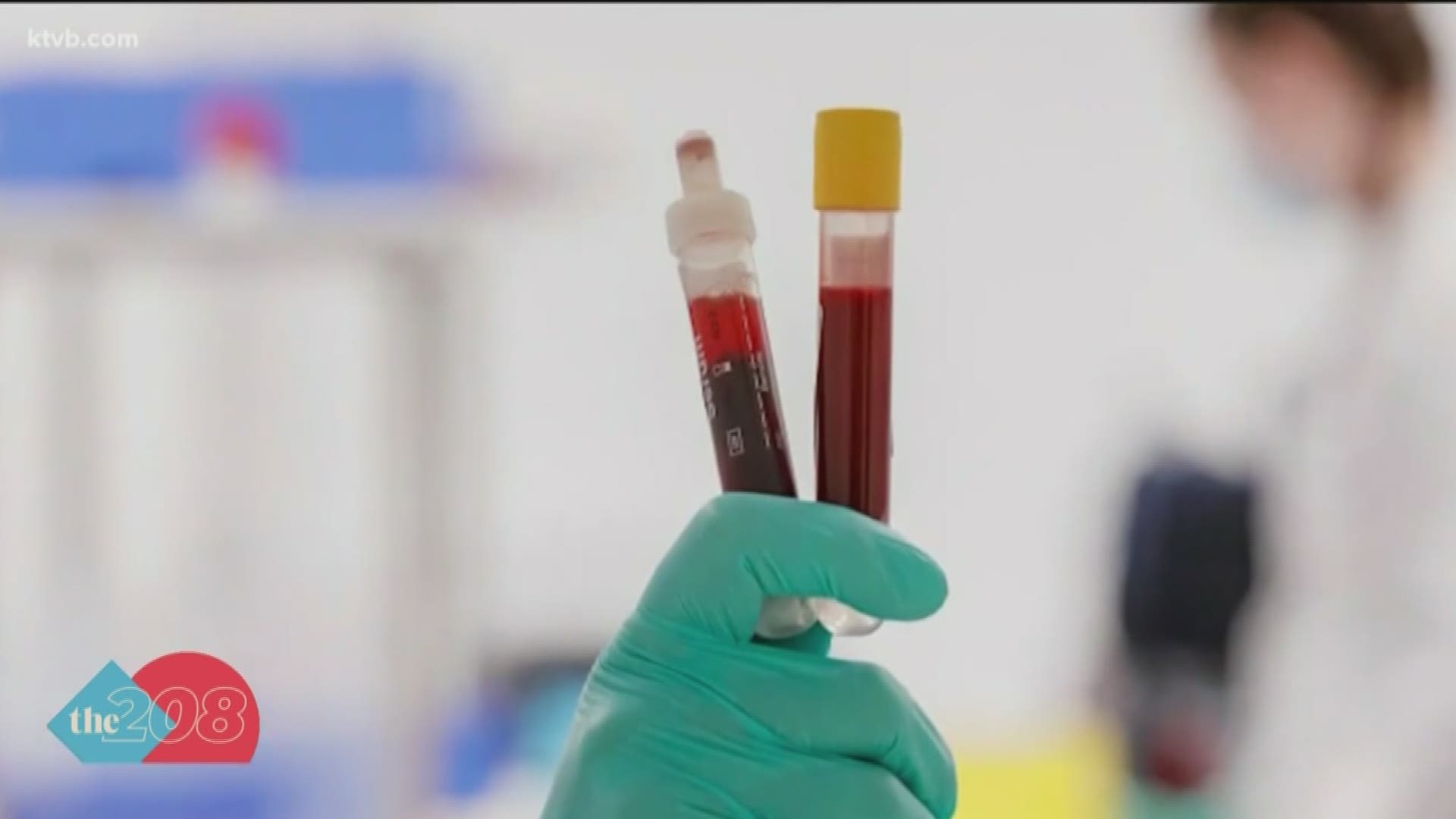BOISE, Idaho — During a news conference on Friday, Gov. Brad Little and state health officials outlined their goals moving forward.
Antibody tests are a part of that, but not to the degree that some might have guessed a few weeks back.
So, what's the word on antibody tests? Are they still valuable?
KTVB sat down with Dr. Tommy Ahlquist to find out.
Dr. Ahlquist is a former ER doctor who co-founded Crush the Curve Idaho, a nonprofit group that has worked to supply the state with coronavirus and antibody tests.
"It was really nice to hear the [state's] plan for testing because we all know, it's going to be testing that gets us out of this," Ahlquist said.
Crush the Curve Idaho has worked for weeks to supply COVID-19 and antibody tests to Idaho communities.
Idaho COVID-19 latest: Latest news and daily updates | Map of confirmed Idaho cases | Timelines tracking case trends | Gov. Little’s plan to reopen Idaho in stages | COVID-19 resources | Testing sites | Employers hiring | Help nonprofits | Full COVID-19 coverage
Following Little's news conference on Friday, Ahlquist says he is encouraged by the state's testing plan.
"We need to get ready for the fall because it's going to be very different and we know that," he said. "We know we are going to have flu season, colds, fevers, and the last thing we need this fall is to not be prepared."
When it comes to antibody testing though, the state's plan is to utilize the tests, but at a lower level than before.
“Antibody testing is more of an epidemiology tool," explained Dr. Jim Souza, co-chair of the state's coronavirus task force. "It gives you a map of what's happening and where and it's looking backwards in time at least a few weeks,” Souza said.
Ahlquist agrees that the coronavirus tests are the most important aspect of testing, but that antibody testing, like Crush the Curve offers, still has value.
"By us testing over 10,000 people with antibody screenings in the state, we know what the prevalence of COVID was in the state," he said.
That is very helpful data."
Those positive antibody tests are not reflected in the state's positive test data, but Ahlquist explains their value on a smaller community level.
"If you're a business on the frontline and you have right now 2% of your workers that are antibody-tested and they are positive for [COVID-19 antibodies] and then let's say in July you retest some or all of them and that number has gone up to 10%, I think that's going to tell you a lot," he said. "You're going to be able to say, hey, while we're working people are serial-converting from negative to positive, and we didn't even know it."
More research is still being done, but Ahlquist believes antibody testing will be very important in the fall.
"The antibody tests will show you'll have some immunity to this and it will be helpful to workers in the fall and into next year until we have a vaccine to know whose had it and who hasn't," Ahlquist said. "So it will become increasingly important and it's been misunderstood since early on, for sure, and there were a lot of bad tests out there that makes it rough, but I think it will be very helpful for businesses, especially where they work in close proximity to each other."
Ahlquist is also optimistic that new coronavirus rapid response tests will be available in the near future.
“Soon we will have an antigen test for the virus, and that’s going to change the game completely. Hopefully, those will be ready for the fall," he said. "Those are very accurate tests that can be done at the bedside, very quickly and get turnaround time immediately that won’t need a PCR test,” Ahlquist said.
According to Ahlquist, there has been a little bit of a lull in coronavirus testing because people are generally healthier through the summer months.
He is encouraged though by available testing capacity and encourages everyone who is feeling sick to go get tested.
“No one out there should think that if they get sick, there is not a way to get tested," he said. "There are lots of places to get tested right here in the valley, there are lots of solutions for testing."
Crush the Curve, for example, has the capacity to do up to 4,000 COVID-19 tests a day.
“We have to make sure we do it right, and testing is going to provide that for us,” Ahlquist said.
RELATED: State recommending limited use of antibody testing while ramping up coronavirus testing capacity
Facts not fear: More on coronavirus
See our latest updates in our YouTube playlist:
At KTVB, we’re focusing our news coverage on the facts and not the fear around the virus. To see our full coverage, visit our coronavirus section, here: www.ktvb.com/coronavirus.

